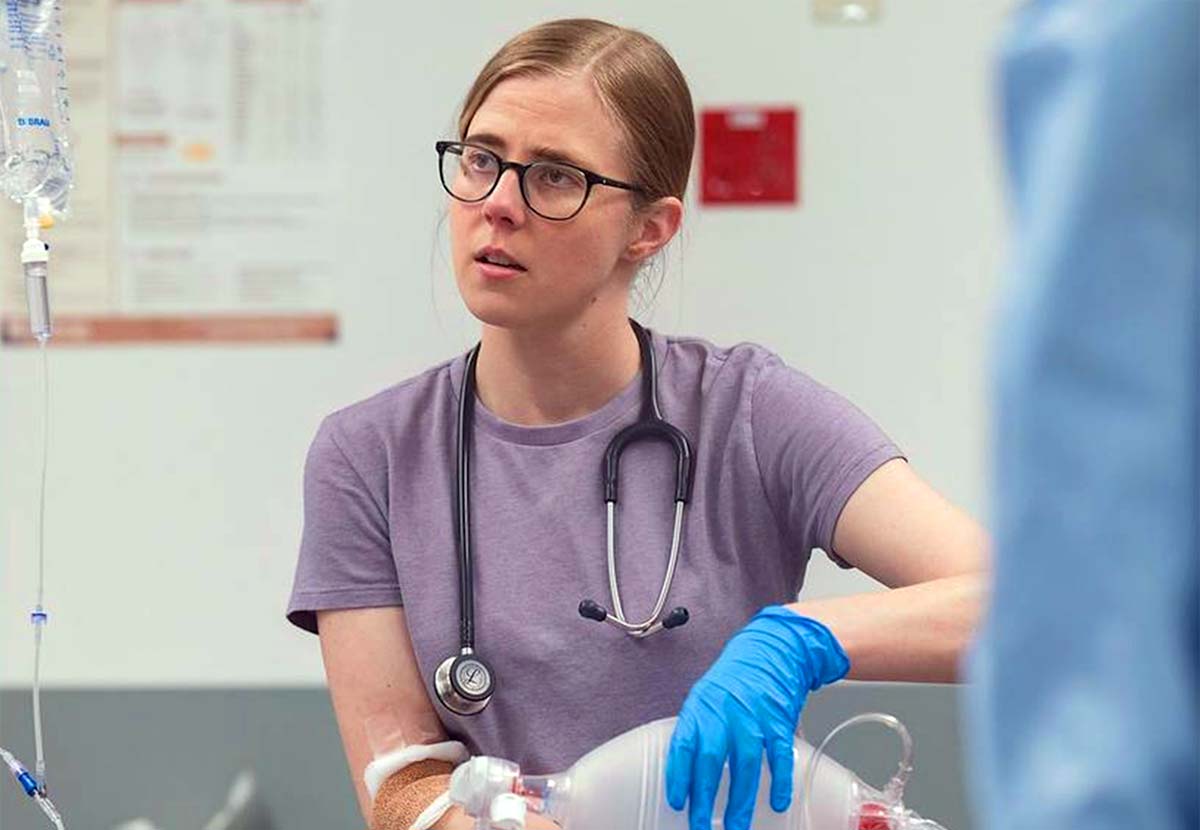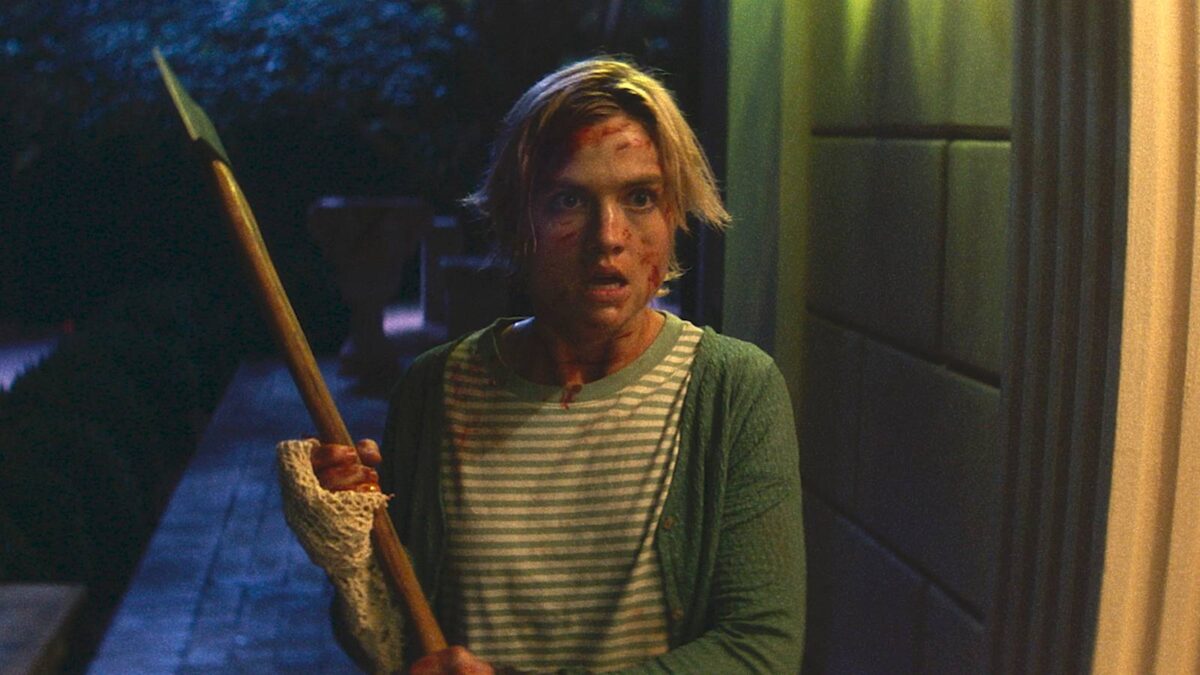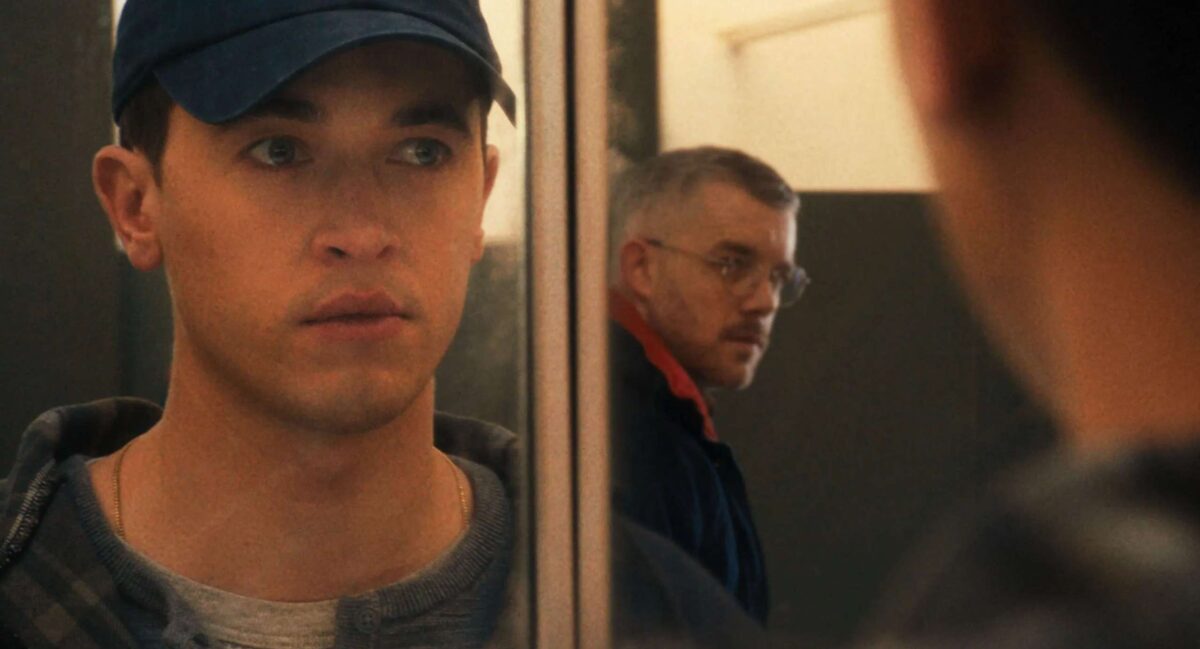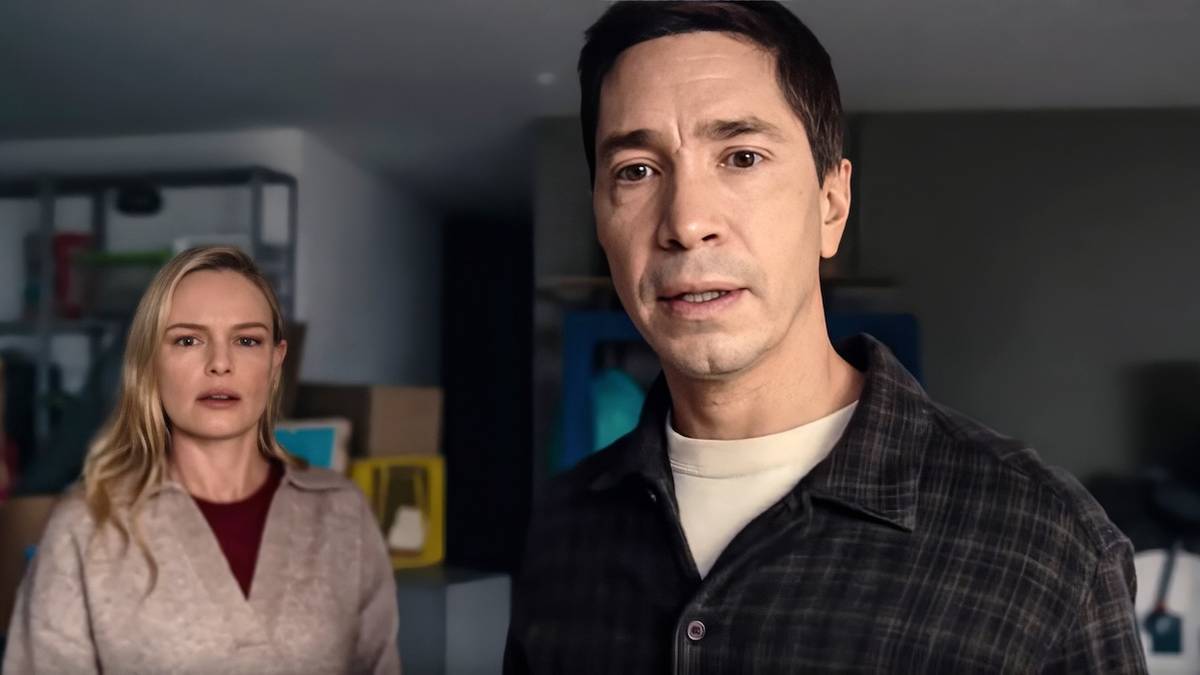
Taylor Dearden On The Hit HBO Medical Drama, Psychic Trauma, Neurodivergence, Season 2 & More [Interview]
Jun 16, 2025
Given “ER” did it best and the ubiquity of “Grey’s Anatomy” and similar network television medical dramas—a genre that never really ever left TV since the 80s— it didn’t really seem like a prestige drama version of an emergency room TV series was necessary. In fact, when HBO Max’s “The Pitt” first arrived, despite the inclusion of Noah Wylie as the lead, a writer and an executive producer on the show—clearly he learned a thing or two from his long stint on ER”—passed some media outlets by. But quickly, its word-of-mouth power became too much to ignore, as “The Pitt” became a bona fide smash hit, crashing through the ratings ceiling.
READ MORE: Summer 2025 TV Preview: 43 Shows To Watch
Fifteen episodes centered on 15 hours in an overlong emergency room shift, the narrative style of “The Pitt” was audacious. Could it sustain itself over half a day, without exhausting audiences? Even the cast and creators weren’t sure, but viewers were immediately on board and only wanted more. With Wylie at the head of a big ensemble, “The Pitt” features a massive cast of breakouts, Isa Briones, Patrick Ball, and Katherine LaNasa, but perhaps none more than Dr. Melissa King, an incredibly kind source of empathy in a hectic space of prominent personalities and egos within Pittsburgh Trauma Medical Hospital.
A second-year resident, Deardon’s King works closely alongside doctors like Dr. Frank Langdon (Ball) and Dr. Michael “Robby” Robinavitch (Wyle) while looking after her autistic twin sister, Becca, in her small, seemingly non-existent personal life.
Throughout 15 episodes, Dearden’s Dr. Mel is a huge standout, warm-hearted, attentive, sensitive, and, as we eventually surmise without much spoon-feeding, but gentle clues dropped along the way, on the spectrum and neurodivergent.
With “The Pitt” fully available on HBO Max and the second season in pre-production, locked, and ready to start, we talked to Dearden about her character, living emergency room trauma, the complexities of pulling off this demanding show, and what’s in store for season two.
They say the body keeps the score and holds on tightly to trauma. I’ve got to imagine the body doesn’t always know you’re acting when you’re pretending to be stressed, anxious, worried and traumatized, and it all takes a toll.
It definitely takes a toll, yeah. It was a good learning process for me to be like, “Alright, I must find a way to separate myself from my character a little bit because it seeps in. In every single trauma scene, we have adrenaline, no matter what. And because we also shoot in sequence, it’s every single day and often that scene will come up again, and we must do a different part of that scene, but it’s spread out over the week, so we end up with full-on adrenal fatigue. And it’s tough. I had no idea about this new season and whether they’re changing that.
So, I guess learning to pace yourself and prep is a big part of season two since it was all new to you at first?
The first season was just a giant, “Let’s hope this works.” And it’s things like adrenal fatigue that you don’t consider at all. Hopefully, we’ve learned from it, but I also know I have to figure out a way to pace myself, but I have no idea how.
From what I understand about how the show is made, it almost sounds like theater in that you’re all super rehearsed and then you go on this big set of a stage and do it, and it’s filmed while you do it.
A bit, yes, it’s incredibly rehearsed, you know, the material backwards and forwards, you’ve been doing it for so long, and then you finally get to present it on stage.
But we have nine days to shoot an episode, so we don’t always have the time or ability to get all of the material down and totally secondhand in our heads, and we can do it as quickly as you would with theater.
And didn’t get much rehearsal together as a collective, it’s more that everyone knows their material down cold, cause it’s dense and there’s so much of it you can’t mess about.
All of it was trial and error, though. How much rehearsal do we need? How do we schedule this? If it were a trauma scene that worked out with all the schedules, we would all do it together. Sometimes, people would have a day off and come in street clothes, and we would rehearse it while they’re shooting on a different part of the set.
What I like about the show’s writing is that it’s not obvious or spoon-fed. We now know your character, Dr. Mel is neurodivergent, maybe somewhere on the spectrum, but we’re never told that, certainly not upfront and the audience just eventually pieces that together as the show unfolds.
Yeah, it was cool, we sat down in pairs and told our backstories. So it was me, Dr. Cassie McKay, and Fiona Dourif, and they went through the whole backstory with us. It was fantastic. Most of it will never come up on screen, but it was for all of us to have something to anchor us when we started. The way it’s written is much more organic and less expository. The backstories weren’t necessarily in the script, but endlessly helpful.
I mean, I am neurodivergent, so to me, it was really obvious. But I think for everyone else who isn’t or isn’t around neurodivergence, it could be much more subtle, which was the goal.
The show and the ER itself are basically like organized chaos, and there’s a lot of tension and anxiety pulsing throughout, but your character stands out because she is almost oddly together and never shouting or unperturbed. She seems like she would be great in an emergency.
That’s actually an ADHD trait, which is what I have, and that we are on the same spectrum as autism. Now they’ve finally figured it out, which was huge, but, randomly, we are fantastic in emergencies.
There’s actually an overpopulation of ADHD in emergency departments—firefighters, cops and detectives, because when the fight or flight response is triggered, we have incredible focus. I’ve experienced it in my personal life, coming down from the big thing, and realizing, “Did I really just do all of those really incredibly efficient things at the right time?” and people were like, “How do you know how to do that?”
I pitched the phenomenon to a few writers, actually. In trauma, there’s this thing that happens with us, so I was like, “Can I kind of try that a little?” and fortunately, they agreed.
Empathy has become a really cheap buzzword these days, but your character has really sparked with audiences cause she genuinely seems to have a pronounced sense of empathy that patients want when they’re in this terrible situation—their worst day ever, essentially.
Being a highly sensitive person with neurodivergence, it keys you into pain. Empathy is knowing pain. I read somewhere that anyone who smiles while saying they’re an empath is not an empath, because the main element of an empath is that you feel others’ pain. You rarely feel happiness, and it comes from having pain yourself.
With Mel, she’s especially keyed in to see those aspects in others. What makes her so smart and clever is that she does have the solutions, but she naturally sees pain and discomfort, and then is smart enough to figure out what will alleviate pain, and that’s what you want in a doctor.
There’s a time jump in season two.
Yeah, it’s ten months later, and what does that mean for Mel? She’s an R3 now, a more senior doctor. I assume she takes on much more responsibility, having people come to her to clear things up and step into a leadership position.
Back to preparation. What do you personally do to survive the long schedule?
Working out, honestly, is huge. We have to literally physically lug around real people moving patients to a gurney, and it’s real work. Thanks to working on this show, I’ve been to a chiropractor and a kinesiologist.
So it’s as intense as it looks.
Yep, we’re often sore, it’s pretty nuts.
All episodes of “The Pitt” are streaming now on HBO Max. The second season is gearing up to shoot at any moment now.
Publisher: Source link
Erotic Horror Is Long On Innuendo, Short On Climax As It Fails To Deliver On A Promising Premise
Picture this: you splurge on a stunning estate on AirBnB for a romantic weekend with your long-time partner, only for another couple to show up having done the same, on a different app. With the hosts not responding to messages…
Oct 8, 2025
Desire, Duty, and Deception Collide
Carmen Emmi’s Plainclothes is an evocative, bruising romantic thriller that takes place in the shadowy underbelly of 1990s New York, where personal identity collides with institutional control. More than just a story about police work, the film is a taut…
Oct 8, 2025
Real-Life Couple Justin Long and Kate Bosworth Have Tons of Fun in a Creature Feature That Plays It Too Safe
In 2022, Justin Long and Kate Bosworth teamed up for the horror comedy House of Darkness. A year later, the actors got married and are now parents, so it's fun to see them working together again for another outing in…
Oct 6, 2025
Raoul Peck’s Everything Bagel Documentary Puts Too Much In the Author’s Mouth [TIFF]
Everyone has their own George Orwell and tends to think everyone else gets him wrong. As such, making a sprawling quasi-biographical documentary like “Orwell: 2+2=5” is a brave effort bound to exasperate people across the political spectrum. Even so, Raoul…
Oct 6, 2025











